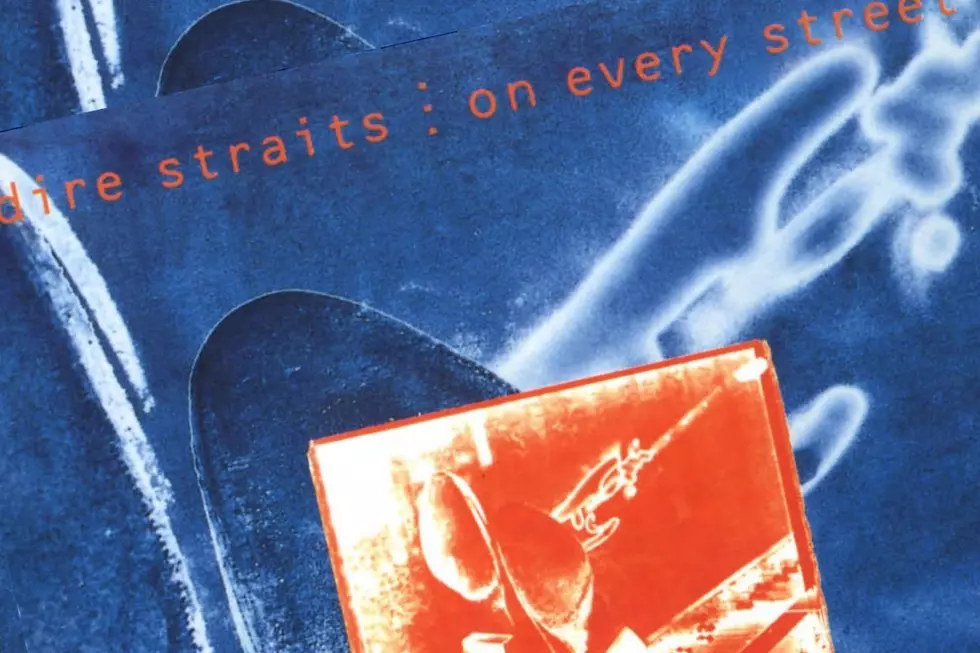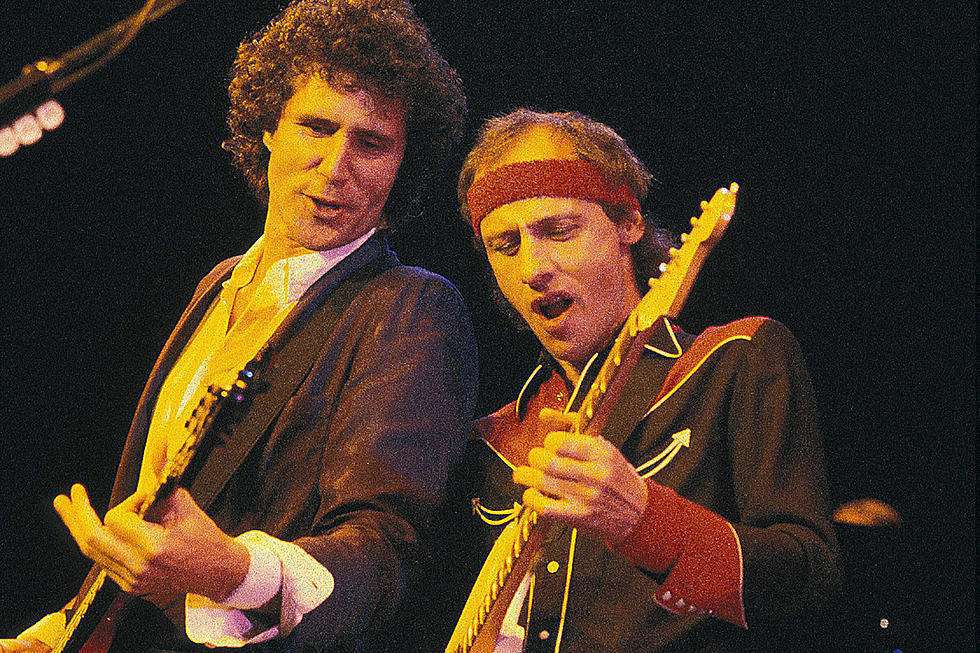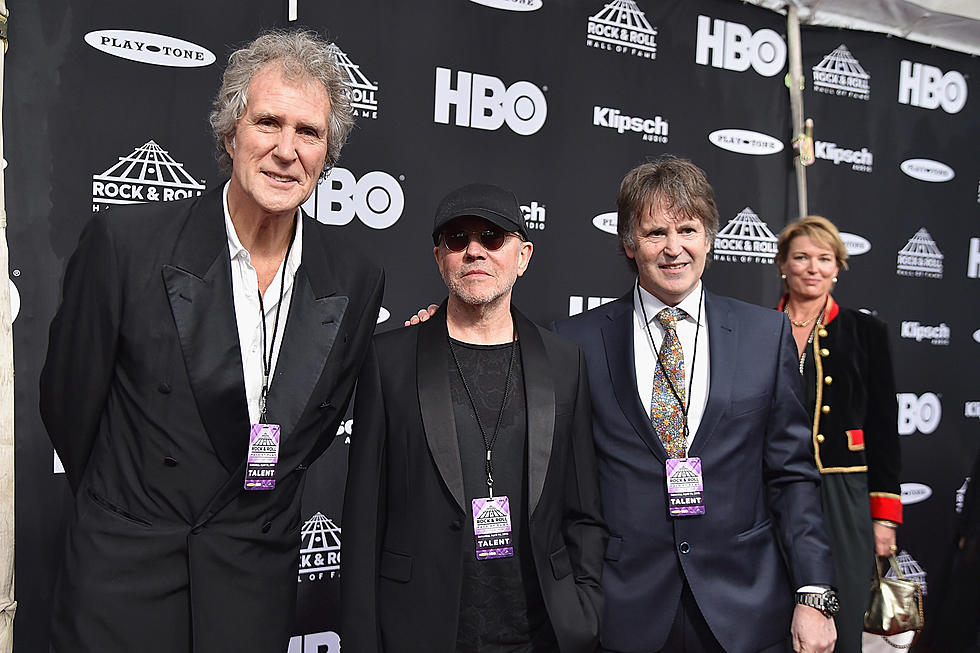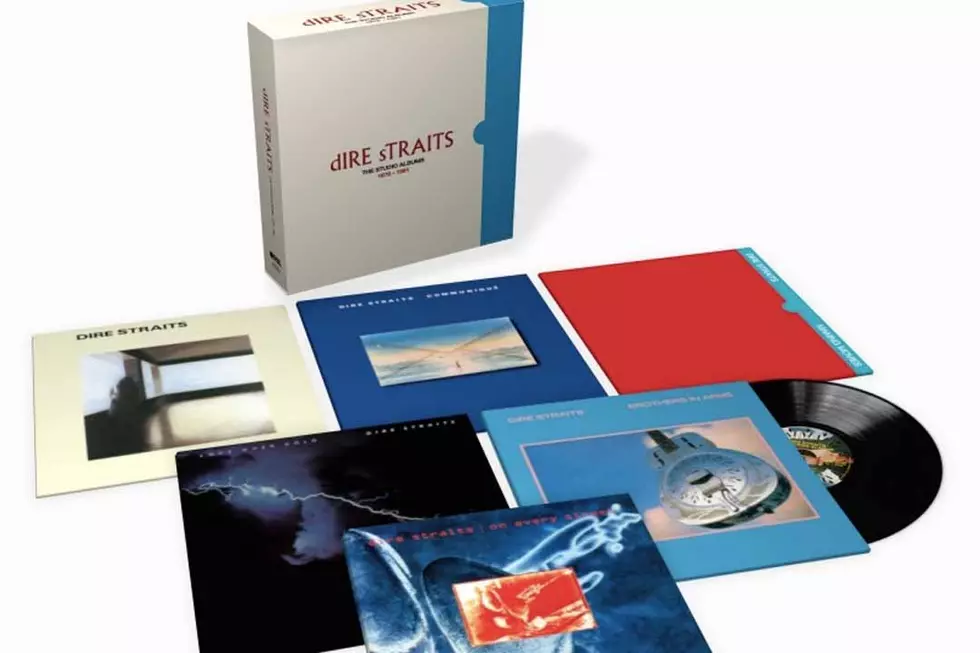
Why Dire Straits Rejected the Easy Path With ‘On Every Street’
Following a hugely successful album has proven to be an overbearing and unforgiving challenge, especially if that preceding effort transcends genres and sells tens of millions of copies. Such was the case for Dire Straits and On Every Street.
Released on Sept. 10, 1991, the record couldn't quite avoid the shadow of 1985's blockbuster Brothers in Arms, which became one of the world’s biggest selling albums of all-time on the strength of monster hits like “Money for Nothing” and “Walk of Life."
Band leader Mark Knopfler took his time before committing to another Dire Straits record. In the interim, he wrote the scores for The Princess Bride and Last Exit to Brooklyn and explored country music with two albums in 1990, Missing...Presumed Having a Good Time by the Notting Hillbillies and Neck and Neck with one of his guitar idols, Chet Atkins.
Knopfler's excursions broadened his sonic palette, and that's reflected in the subdued, but captivating, On Every Street. It kicks off with the Memphis-tinged “Calling Elvis,” the album’s first single. Knopfler sings in an almost-talking style and lets the guitar break carry the tune. "Calling Elvis," "Heavy Fuel" and "The Bug" would reach the Top 10 at Mainstream Rock radio, but none hit Billboard's Hot 100.
Watch Dire Straits' 'Calling Elvis' Video
Instead, the album excels outside of having hits, most notably the exquisite title track. Knopfler paints a brilliant picture through the song’s first three verses that are played with only a piano and Knopfler’s haunting baritone voice. The verses are exchanged each time with a gorgeous alto sax melody. The highlight of the track follows after the third verse, when the guitarist’s distinctive finger-picking presents the sax refrain in a new way and invites the band to follow with an up-tempo jam.
Various styles ensue throughout the album from the mocking yacht-rock of “My Parties”, to the lush, bolero-with-strings of “Ticket to Heaven” and the country-flavored album closer, “How Long.” Knopfler does allow for some stellar solo work on classic Dire Straits-sounding tracks like “Planet of New Orleans," but the focus would remain on the substance of the lyrics and the group sound as a whole.
Despite the lack of hit singles, the album went on to sell nearly 15 million copies worldwide. Still, On Every Street did not receive high praise out of the gate, with many reviewers rating it as a step down from their previous smash.
This would the band’s final album, as Knopfler would retreat to a solo career, one without much fanfare or radio hits. While perhaps not received as well at the time of its release, On Every Street is an album that shows a band deciding its own fate by taking back their identity. It is an album that holds up better than it did back at the time of its release, and that is a testament to the elegant performances and brilliant songwriting by one of rock’s great composers.
– Roie Avin
Top 100 Live Albums
More From Ultimate Classic Rock









